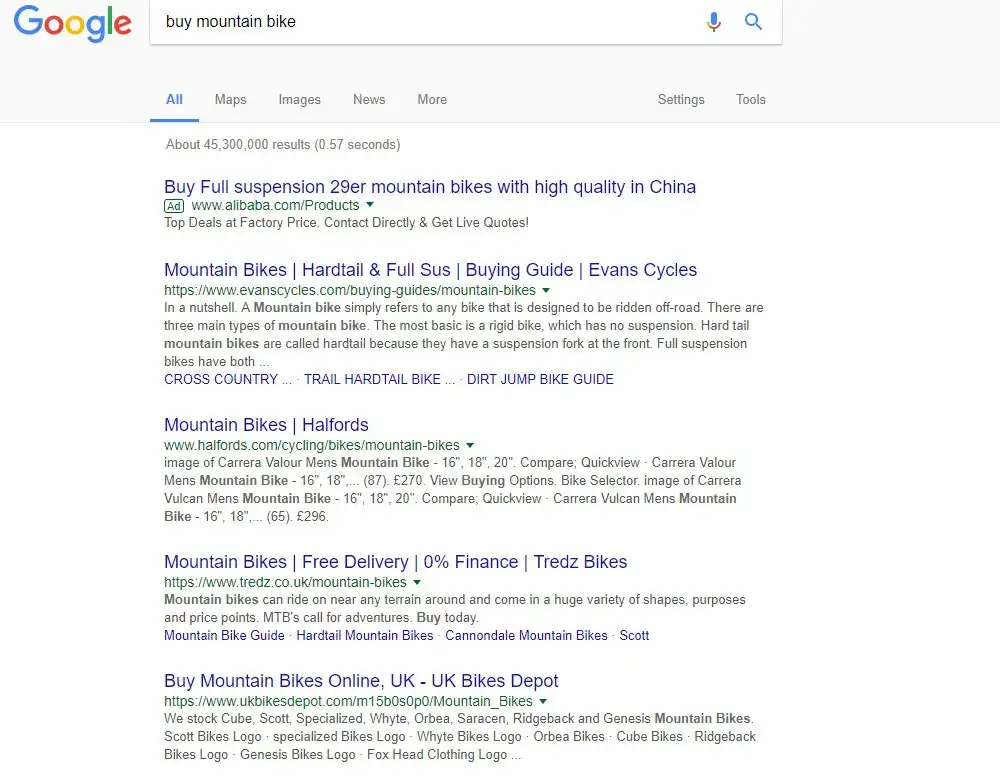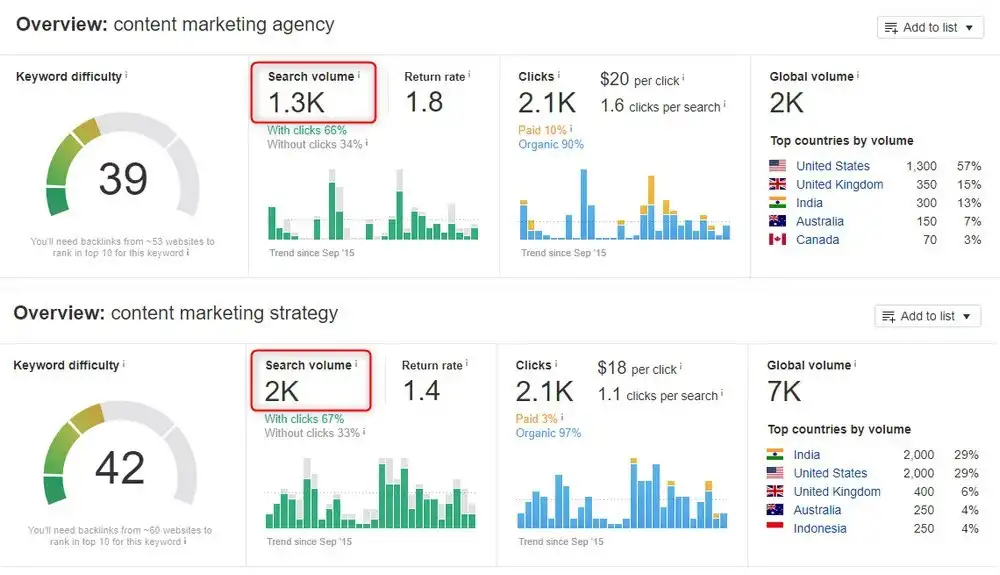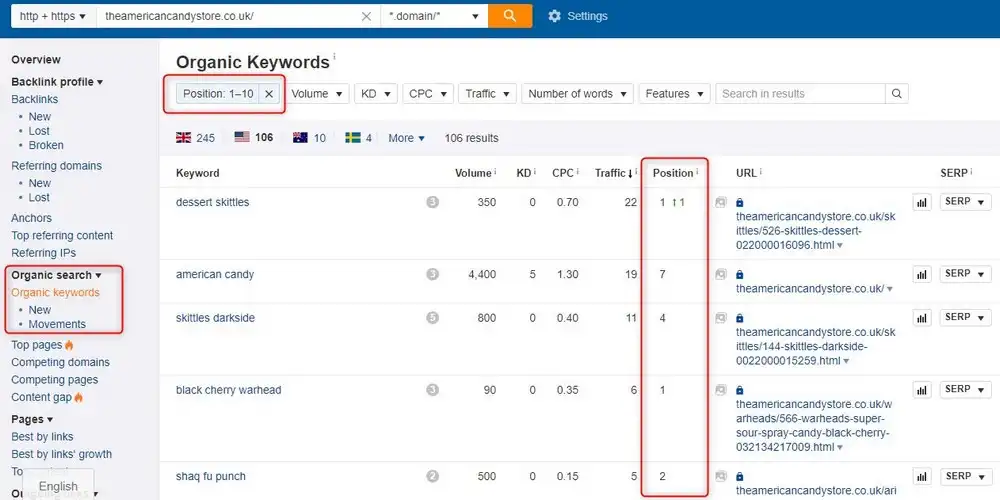How to Piggyback Your Competitors With Keywords
Competition between brands has become more intense these days. The truth is that the competition isn’t always bad. It is a perfect catalyst that can force the business to develop and grow.
Every newly emerged business is doomed to have some competitors. The good news: you can still survive and even benefit from your competitors online. Let’s check out the most effective techniques that will let you piggyback your competitors with their organic keywords.
Niche Research
There are a few ways to collect a list of your competitors and check out their keywords. If you don’t know exactly who they are, you can google them. Search for the most obvious keywords you use for your own business.
Thus, bike stores can try to “buy mountain bike” or “buy city bike” keywords to learn what websites and online stores sit at the Top 10. If you’re a blogger, you can use the same research tactically to learn what are your competitors and get some fresh ideas for posts.

You can also check out your website competitors in the tools you use for your SEO. Most of them will have a Competitors tab that will show you the list of your online rivals.
What Keywords to Choose
Now, when you know your competitors, you can research their keywords to use in your SEO strategy. But first, you should know what kinds of keywords may be beneficial to you and bring you the targeted traffic and leads. Various types of keywords can help you to get to the top.
When you are at the beginning of a new business, you should focus on less competitive long-tail keywords. Longtails are more specific than other keywords. Despite their low search volume, these keywords describe the content on a page more precisely. Also, long-tail keywords are amazingly versatile and can help you rank for more keywords.
Other metrics you should take into account:
Search volume: It’s one of the primary metrics users pay attention to when choosing their keywords. However, if you’re checking the search volume in Google Keyword Planner, you will not get the exact numbers. Thus, three closely related keywords, like “content marketing agency”, “content marketing strategy” all have in GKP the search volume of 1K-10K. But if you check them in other tools that don’t group keyword volumes, you will notice that the actual search volumes for them are different:

Estimated traffic: One of the goals of any project – getting a stable amount of traffic. It may change often depending on trends, seasonality or other factors. But the content that answers most of the user’s issues will bring you tons of traffic through the years.
Competition: Not any long-tail keyword will fit your website. Some keywords have a high level of competition that you will hardly get to the Top with them. Google Keyword Planner estimates the competition level for paid search keywords. When it comes to organic search, it’s better to use the keyword difficulty metric that shows the number of backlinks you should get to your page to rank in Top10 for a given keyword naturally.
Clicks: It’s funny, but not all the Top10 results may get lots of clicks. Google now evaluates simple ‘question’ search queries and offers users the results right on the SERP, as with the ‘when is Cannes film festival‘ keyword:

So, the metric that shows you the number of clicks should also be taken into account.
Review the Competitors Keywords
You don’t need access to your competitors Google Analytics accounts to learn what keywords do they rank for in SERPs. Many keyword tools give you an opportunity to check out the competitor’s keywords. E.g., with Ahrefs you can do it just by placing the link to their website into the Site Explorer. After clicking the Organic Keywords tab in the sidebar on the left, you can see the competitors keywords.
You might be tempted to copy all the keywords from the list to use them on your website. But that could be a total waste of time. Sort out those keywords by their Position from 1 to 10, to see only those that help your competitors rank in the Google Top10.

Then choose the best ones according to their metrics. Check out the SERP for those keywords to see the content that ranks for them. Create 10x better content than your competitors offer. No waffle, no boasting, just useful content that solves your client’s issues.
Get more from Low-Volume Keywords
During your research, you may find a bunch of keywords with a very low search volume. Those are usually branded keywords that mention your competitor. In most cases, you discard those results. But there are a few ways to benefit even from those low-volume keywords and get some highly targeted traffic to your website.
Intercept the customers.
Online shoppers usually check out a few places before making a purchase. It’s the stage when you can intercept them while they are evaluating the offer. Show up your store, product or services as a better/faster/cheaper alternative to your competitors. Use the keywords that include your competitors brand name + words ‘alternative’, ‘better solution’ ‘cheaper/faster etc. The words ‘comparison’ or ‘vs’ will also be a good idea to use.
Show how to use their product.
You can target the users who look for a broader solution for their issues. Thus, as a bike seller, you can create an article about the best pumps for bikes, showing how to use them for different kinds of bikes. Use the keywords that include the ‘how to use + brand’ phrase.
With this kind of low-volume keywords, you will not only get massive traffic. You will definitely attract a bunch of highly targeted and highly motivated purchase customers.
The Bottom Line
So, there are a few simple steps you should perform to piggyback your competitors:
- Define the group of your best online rivals;
- Check out the keywords that help them rank in Google Top10;
- Examine the content they offer for those keywords and try to make your content 10x times better;
- Use lower-volume keywords to intercept their customers and offer them a better alternative.
The main thing here is trying various solutions. Also, evaluate the keywords regarding the effort they require from you. You don’t need to waste your time on a ton of keywords that will not bring you the desired result. Use the keywords that bring you the highest ROI.
Author bio:
Helen is a content marketer at Ahrefs. She explores new things every day to impress her readers with catchy stories. Apart from all that marketing stuff, Helen loves listening to rock music, reading and travelling. A lot! Feel free to follow Helen on Twitter.




![How to Start an Ecommerce Business in Australia [2023 Guide]](/template/5731a701/images/resource-blog-right-img1.png)





